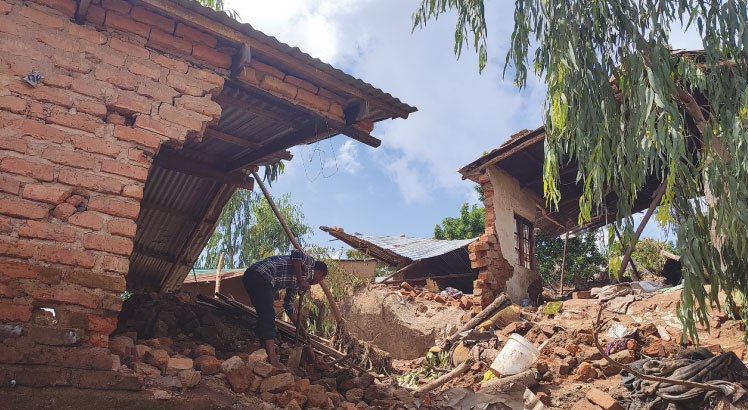Forum for good governance of resources
The Eighth African Development Forum (ADFVIII) concluded three days of intense debate and discussions among stakeholders with a consensus statement that outlined actions and commitments that will see Africa gain more from its land, mineral, forestry and fishery resources.
The Forum’s theme, Governing Africa’s natural resources for Africa’s development, attracted over 800 representatives from government, private sector, academia, development partners and non-governmental organizations.
 The forum was co-organized by the Economic Commission for Africa, (ECA) the African Union Commission and the African Development Bank.
Speaking at the closing, Abdalla Hamdok, ECA Deputy Executive Secretary, highlighted areas in which the stakeholders made progress on, in particular on issues to do with equity, implementation of policies, and building requisite capacities. Across all the four natural resources sectors, the need to address equity and sharing of benefits in light of the exclusion of large sections of society emerged as needing the most urgent attention.
“Transformation is simply not possible if it excludes the large majority of our population from the economic and social benefits of their own asset; Thus the key challenge in going forward is creating the policy and institutional space to provide for equity in the distribution of benefits from natural resources,†stressed Hamdok.
‘Better policies’
Furthermore, the discussions on natural resource policy drew attention to the fact that they are often fragmented and not rooted in a long-term transformation strategy. “We need to link natural resources policies to infrastructure development; these policies should also optimize available economic and social opportunities, especially those offered by agriculture, forestry and fisheries,†he said.
With regard to the current investment trends, the forum decried the tendency to excessively focus on large-scale investments at the expense of small and medium scale enterprises, which, according to Hamdok, create more jobs per invested dollar.
“Such small investments have the potential to kick-start our rural economies, which currently are subsistence, and hence represent a quick way of bringing the greater majority of our people into gainful economic activity and improve their livelihoods,†he added.
Hamdok informed the forum that despite the “wonderful continental blueprints for transformation, Africa continues to suffer from a lack of implementation across all the natural resource sectors.â€
He called for domestication and implementation of such blueprints as the Africa Mining Vision and the Land Policy Framework to kick-start Africa’s transformation. He also added, that underscored the need for transformative leadership, “not only at government and political levels, but in corporate boardrooms, in our parliaments and among our civil society groups.â€
‘inadquate transformation’
In this regard, Hamdok, however, pointed out that current levels of capacity are “totally inadequate and unsuited to a transformative agenda and that as vital as increasing the numbers of engineers and scientists would be, Africa’s natural resources sector also needs social skills and economic expertise.
 “These skills will help us understand how economic and social value is created as this is where we are weakest,†he said.
Furthermore, a key area of concern that permeated the discussions was the lack of knowledge of the Continent’s economic assets. The net
worth of both the economic and social benefits, said Hamdok, is a first step towards meaningful negotiations. Participants, noted
Hamdok, agreed on the need to monitor and evaluate the effectiveness of policy implementation and track the depletion rates of Africa’s resources.
“The management and use of natural resources for our transformation is a shared responsibility,†concluded the Deputy Executive Secretary.
The conclusion of the forum was also marked by an extended separate BBC Africa debate, on the issues emerging from ADFVIII.
The 2-hour debate was attended by over 150 experts and members of the public, who underscored transparency, value-added manufacturing of Africa’s natural resources, smarter investments and negotiations; as well as better spending strategies.
The need for stabilization funds, increased savings and diversification of economies also framed the discussions—Uneca- ICS





